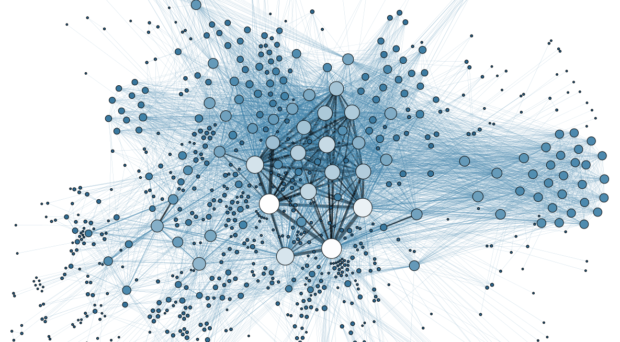
Buzzword
Big data is one of the buzzwords in technological and business domains, particularly popularized because of smartphone culture. Companies mostly use it to provide personalized services, recommendations, and advertisements that are most relevant to an individual client’s needs and interests. In our observation, big data also has immense potential that has yet to be tapped for human development and aid.
We were particularly interested in identifying different human development areas that could benefit from big data analytics. We highlighted four such major areas: humanitarian emergencies, poverty and hunger alleviation, healthcare, and education.
Utilizing big data
We conducted an extensive survey of the existing literature, government initiatives, and efforts from various non-governmental and other organizations to see the current state of the techniques and methods that are being deployed to utilize big data in the aforementioned development areas.
As part of our survey we also included a description of various sources of big data and different techniques, e.g. machine learning and data mining, which can be used to excavate useful insights from the data.
Though there are several challenges, the most frequently discussed among these are the issues of privacy and data fragmentation
Though there are several challenges, the most frequently discussed among these are the issues of privacy and data fragmentation – which implies data being present on different isolated databases in potentially different formats for a particular application.
Our overall survey, however, shows an encouraging picture where several efforts are being made to channel the power of big data for human development. Most notably, the United Nations has initiated the UN Global Pulse Project to harness big data which would provide real-time information to its missions, so that the most suitable relief actions can be taken for the most affected.
We have also noticed a healthy trend of open data. The governments of the US and the UK have made data related to several fields publicly available, to fuel innovation. This effort envisions a culture of transparency and equality. Now with all the relevant data available, the most suitable and inclusive public policies can be designed in various fields.
A benefit to healthcare
We believe that the field which will immensely benefit from big data is healthcare.
We believe that the field which will immensely benefit from big data is healthcare. There is a ubiquitous proliferation of smartphones and wearable devices that can provide real-time information about a person’s health in the most user-friendly manner and also, if needed, alert relevant healthcare providers when there is a health-related emergency.
Individualized healthcare is a vision that can be realized by a merger between medical and data science. It aims to provide the most improved and relevant healthcare services to individuals and communities. Through this system, a tailored regimen can be prescribed as per a patient’s particular medical, physical, and environmental conditions.
Through individualized healthcare, overdiagnosis can be avoided in which every patient is passed through the rigors of a treatment without considering their individual conditions. An example of the implementation of individualized healthcare is the initiative taken by Johns Hopkins University called Individualized Health Initiative (inHealth).
Predictive analytics, as the name implies, is a technique used to predict a future outcome or behavior, based on data collected for a particular situation. This technique finds its applications in numerous human development fields. The example of avoiding overdiagnosis as mentioned in the above paragraph is another manifestation of the benefit of predictive analytics in healthcare.
A school teacher can use big data analytics to design an effective curriculum and identify students whose performance trajectory shows that they might fail in particular topics
As another example of pedictive analysis, a school teacher can use big data analytics to design an effective curriculum and identify students whose performance trajectory shows that they might fail in particular topics, and devote special attention towards such individuals.
Machine learning (ML) is a technique that enables systems to make intelligent decisions. Autonomous cars, autopilot functions in aircrafts, and recommendation systems for online shopping are all examples of ML-powered systems.
Sentiment analysis is a powerful machine-learning technique that can be used to gain insights from online social networks like Facebook and Twitter. Through sentiment analysis we can analyze various social and political dimensions of a region.
By combining sentiment analysis with predictive analytics, we can avoid political turmoil and mass riots. In our opinion, if these techniques were used in a timely fashion, the ongoing Syrian migrant crisis could have been avoided.
The modern humanitarian response
The promise that big data holds to revolutionize the modern humanitarian response is encouraging. This promise also entails several ethical and technological challenges, which we have described in detail in our survey.
The most important of these is the issue of privacy. Strict rules and methods have to be designed to ensure the privacy of individuals whose personal data is used to provide services and create public policies. This way a transparent, unbiased, and all-inclusive information age can be truly realized.
- Big data for human development - 1st July 2016
Comments